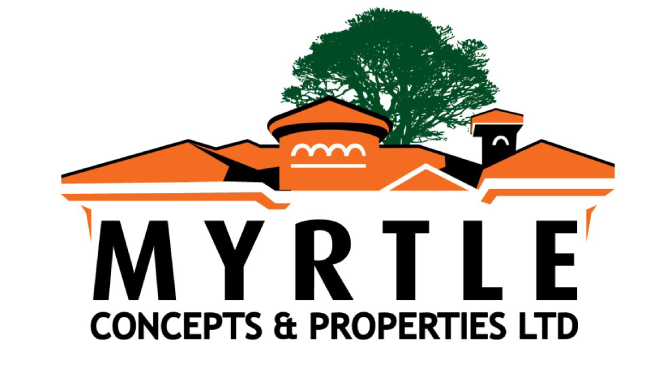
Mr. Dave Khayangayanga
Ag. Director, Directorate of Housing, Ministry of Lands, Housing and Urban Development
Ag. Director, Mr. Dave Khayangayanga provides detailed insightful information the landlord and tenant act,2022.
The landlord and tenant act, 2022 was assented by the president, His exc. Yoweri K. Museveni, this April 2022 to regulate the relationship of the landlords and tenants.
TOPIC: THE LANDLORD AND TENANT ACT, 2022
The government enacted the Landlord and Tenant Act, 2022 in April this Year. Today, we discuss about this act and how it will affect the existing relationships of landlords and tenants.
- Why was it important to enact this act?
The Landlord and tenant is a relationship where you have landlords on one side and tenants on the other side. What brings them together – Rental properties, which could be both residential/commercial, and to some extent, it could be industrial but majorly it is usually residential/commercial. The two parties have not been having a comprehensive law to regulate and guide their relationship.
During the covid19 period of 2020/21, there were various challenges arising between landlords and tenants which needed attention;
- Tenants were being chased out of the houses and their properties were locked up.
- Tenants were running away from rental properties before rent payment.
So, the landlord and tenant act was enacted to address that vacuum and harmonize the relationship for landlords and tenants.
- What are the pertinent issues one should look out for in this act?
There are quite a number of issues but I can mention a few.
- A contract/agreement
Before entering any property, it is very important to sign an agreement between the two parties. The agreement must be detailed providing the rights and responsibilities of each person. This biding factor will create a smooth relationship between the two parties.
- Property Maintenance
Who should do what, when and how? The new law indicates the responsibility of each party in as far as property maintenance is concerned. There are responsibilities that are put on the landlord for instance if wind blows the roof of the rentable property, the landlord should fix it. If the compound is littered according to the agreement signed, the tenant is responsible.
- Payment of Rent
When should a tenant pay rent and for how many months/weeks? As a tenant when you enter a property it is your responsible to always pay rent and on time. This must be agreed in the contract you sign during entry.
- Entry of the property by the landlord
When you are a landlord and you rent a property, it means you have surrendered part of your mandate to the tenant. The tenant has basically secured some privacy in that property. Implying you must notify the tenant in case of need to enter the property. This is specified in the landlord and tenant act.
There are many aspects under various clauses which you can look out. The idea is to harmonize the relationship which is in any case must be enforced by the contract signed when entering the property.
- Uganda is a liberalized economy but,
- Why does the new law intervene in the market economy?
Even liberalized economies are guided and when there are issues, the citizens run to parliament. When tenants and landlords called out for their leaders/politicians during covid19 and other several occasions, something had to be done. That is why the landlord and tenant act was enacted.
- Why does the new law cap rental increment to 10%?
The selection of the 10% was based on the economic analysis of the inflationary trends over the past 10 years. The inflation in the past 10 years has been around 6-7% but less than 10%. We do realize that inflation has not gone into double digits.
Additionally, the whole issue is that we are looking at a rational and reasonable rent increases. The 10% is put in this act for purposes of guidance but it does not mean that every year the landlord should increase rent. In the past Years, we have had landlords who increase rent abruptly thus disorganizing the tenants which in turn destabilizes the economy in the long run.
There were a lot of considerations and discussions that evolved into the indicated 10% in the act. We discussed with different stakeholders that is the tenants, landlords, the Uganda Tenants’ Association in order to formulate this act.
- Why restrict the mode of rent into Ugandan Shillings?
Uganda is a sovereign country with a legal tender as a Ugandan shilling. Therefore, if we are to promote the Ugandan economy and fight the inflation we are facing currently, let us make the Ugandan shilling the legal tender in which we operate.
If we simply allow anyone to dictate the currency in which to pay, we shall be undermining our own sovereignty as a nation.
However, the law still provides that the two parties can agree on another currency, in their initial contract.
- The Law provides for property agents; however, there is no law that guides their operations. What is government doing in this regard?
We have provided for property agents because sometimes we have absentee landlords, tenants who may not necessarily negotiate and work on their own.
The government is also first tracking the Real Estate Agents Bill which has all provisions guiding the works of the property agents.
Above all, the government is formulating the Landlord and Tenant Regulations to operationalize the Landlord and Tenant Act.
- What strategies has government put in place to ensure that this recent law is implemented?
Majorly, the government is going to carry out massive sensitizations across the country and property owners in the diaspora to ensure that every person is informed about the Landlord and Tenant Act. This will harmonize the relationship and work flow between the two parties involved.
- Any other remarks that you would want to highlight for Ugandans in regards to this act?
Ugandans need to understand the Landlord and Tenant Act because it is here to help us to live in harmony and avoid the chaos, which has been happening when there was no comprehensive law to intervene. Now, we have an opportunity, the law has been formulated, let us obey it and live-in peace.

